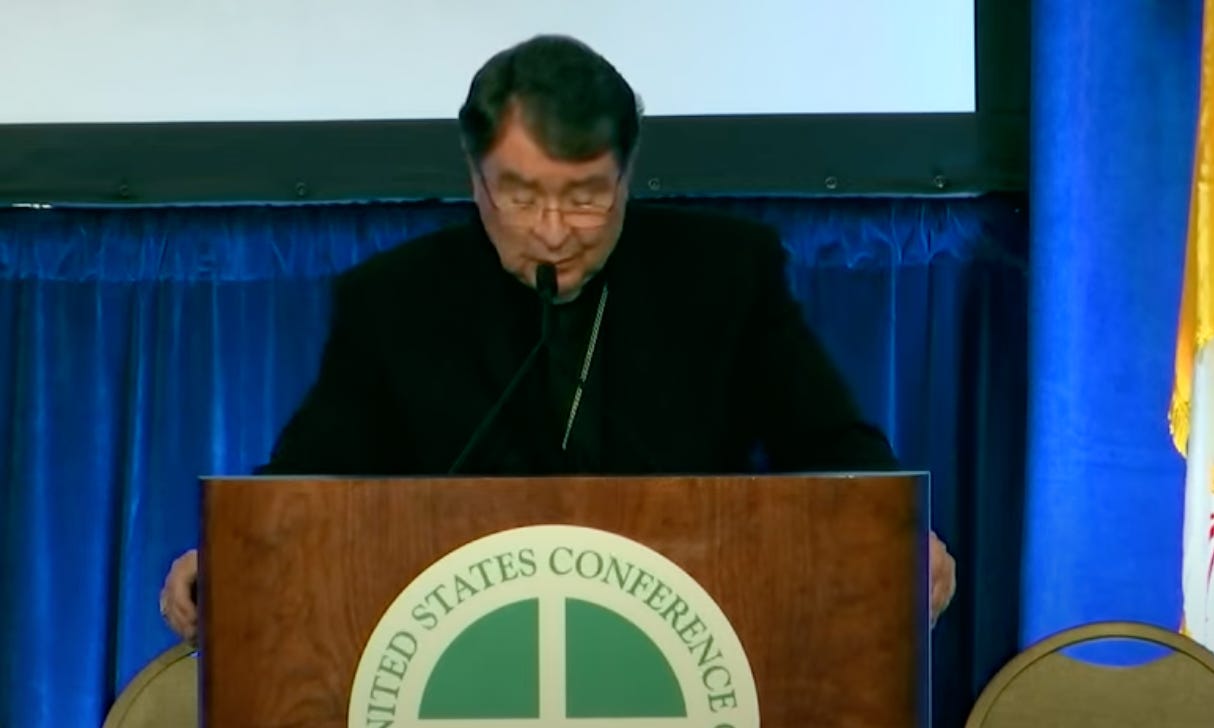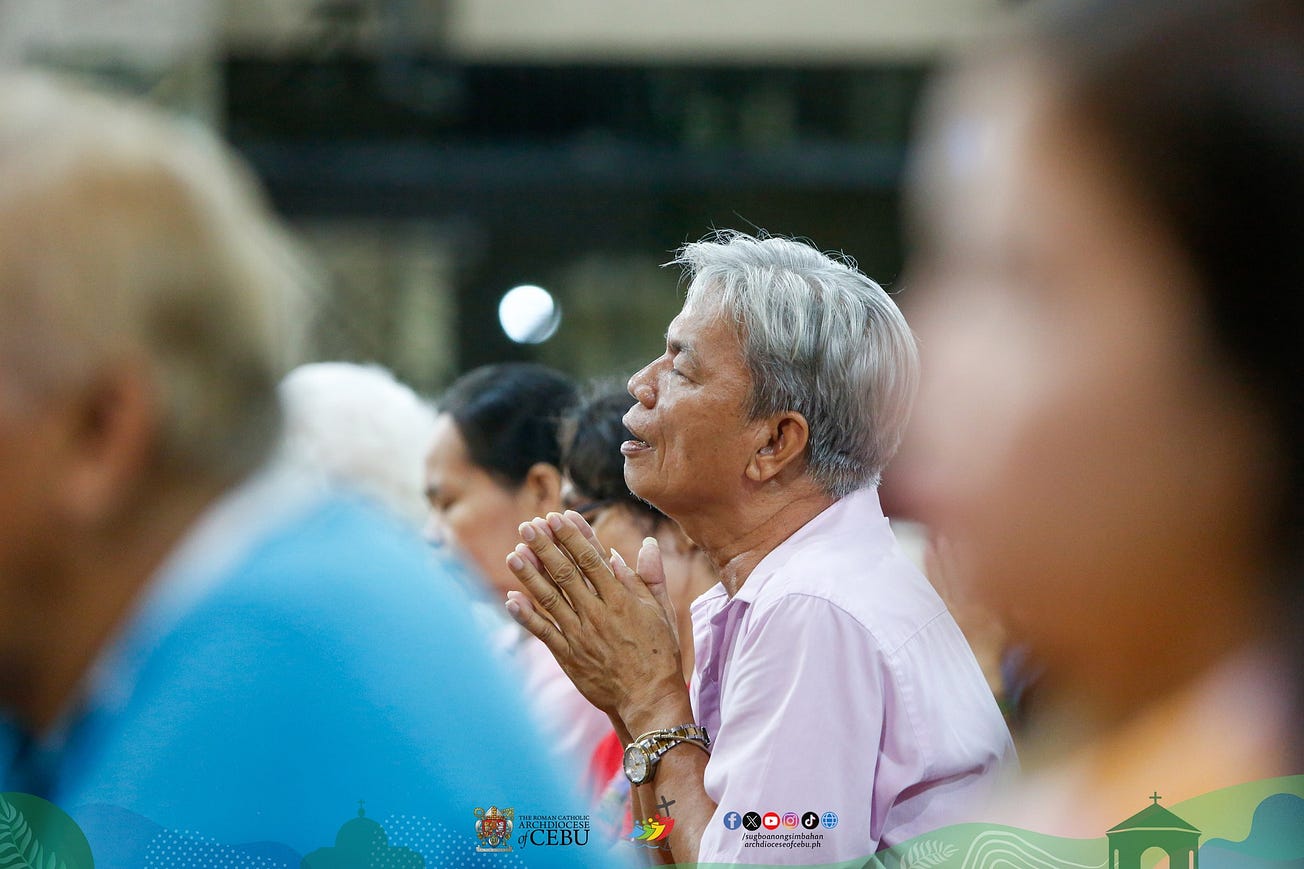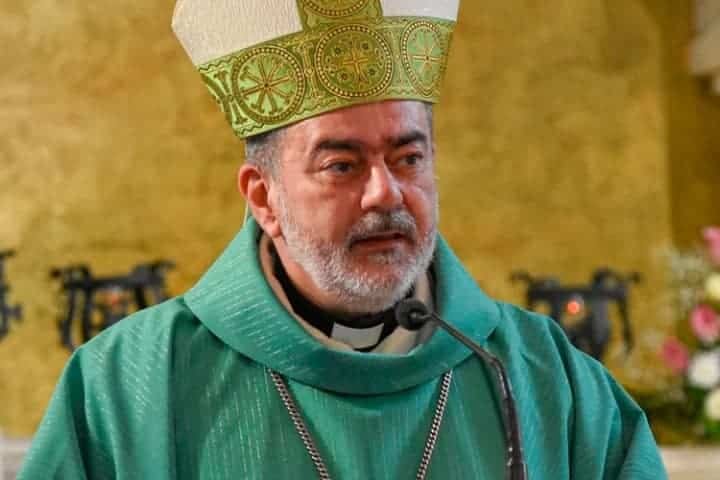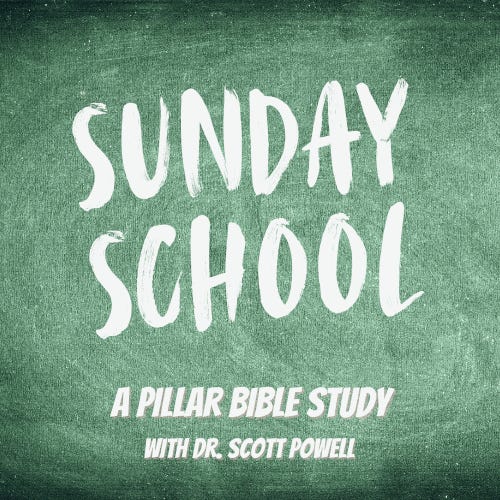In his address to the U.S. bishops Thursday, the apostolic nuncio to the United States stressed that Christ in the Eucharist can make the wounds of the Church victorious.
“[T]he Eucharistic encounter with the risen Lord affords a new personal and ecclesial experience, one in which the wounds suffered in the body of Christ become signs of his victory over death,” said Cardinal Christophe Pierre.
The nuncio addressed the U.S. Conference of Catholic Bishops during its plenary assembly in Louisville June 13.
Pierre encouraged his fellow bishops to personally embrace the Eucharistic encounters they are promoting for their people, in order to allow the wounds of the risen Lord to heal their own wounds.
The bishops’ plenary assembly comes just a few weeks before the National Eucharistic Congress in Indianapolis, part of a multi-year initiative to foster greater devotion toward the real presence of Christ in the Eucharist.
Four Eucharistic pilgrimages are currently taking place, starting at each edge of the country. They will meet in Indianapolis in a few weeks for the congress.
“The Eucharistic processions that are going on right now, and which will converge on Indianapolis next month, are an outward symbol of what we want to happen on a spiritual level,” the nuncio said. “We want people to turn to the Eucharistic Lord, to walk with him, and to be led by him.”
But as the bishops encourage a renewed appreciation of Christ in the Eucharist among the faithful, Pierre challenged them to ask themselves whether they are experiencing that same Eucharistic transformation in their own lives.
“We need Eucharistic revival too,” he emphasized.
When people encounter Christ, particularly in the Eucharist, they allow him to transform their wounds – both individually and as a Church, the archbishop said.
He noted that when Christ appeared to the apostles after the resurrection, he did so with the wounds of his passion still present on his risen body.
“[T]he apostles were also carrying the trauma of wounds when they encountered the risen Lord,” he reflected. “They had abandoned him out of fear. One of their own had committed suicide. They were still grieving the death of the one in whom they had believed, and they were grieving the hope that they thought had died with him.”
All Catholics have wounds too, Pierre said.
And while Catholics might want Christ to erase their wounds, he instead teaches: “I choose to make your sin and failure a part of the story of my victory. If the marks of my crucifixion can exist on my resurrected body, then the marks of your own suffering and failures can exist in the body of my resurrected Church.”
Today, the wounds in the Church are painfully evident, he said.
“The scandal of abuse and of failed oversight. The plague of indifference toward the poor and suffering, which can affect us all. Skepticism toward God and religion in a secularized culture. And an agitating temptation toward polarization and division, even among those of us who are committed to Christ and his Church.”
Bishops can only be effective shepherds and witnesses when they first present their own wounds to Christ and open themselves to his grace and power, Pierre said.
“A bishop who has encountered the power of Christ’s resurrection in his own personal experience of weakness, leads his flock to that same kind of encounter with the Lord.”
The nuncio also warned against the temptation to “turn the page back” by attempting “to resuscitate a part of the Church’s history that appeals to us because it seems like a better, simpler time.”
Rather, he said, connecting with their roots must turn the faithful back to the present, where they acknowledge growth and see how Christ wants to perform his healing work in them.
Through this transformational encounter with the Eucharistic Christ, they are then called to go serve others who are wounded, by accompanying those who are vulnerable, weak, and discarded, he said.
Pierre’s speech at the plenary assembly was followed by an address from conference president Archbishop Timothy Broglio.
Broglio also mentioned the upcoming Eucharistic congress, praising those who have worked to prepare for the event.
Broglio’s speech mentioned a variety of issues of importance for the conference, including peace in the Middle East and Ukraine, the plight of migrants, the protection of the unborn, and the upcoming synod gathering at the Vatican this fall.
He voiced gratitude for Dignitas Infinita, the recent document from the Dicastery for the Doctrine of the Faith, saying it offered “a clear message about many issues that plague our times.”
The archbishop particularly noted the document’s rejection of gender theory.
“Regarding gender theory, whose scientific coherence is the subject of considerable debate among experts, the Church recalls that human life in all its dimensions, both physical and spiritual, is a gift from God. This gift is to be accepted with gratitude and placed at the service of the good,” Dignitas Infinita states.
“Desiring a personal self-determination, as gender theory prescribes, apart from this fundamental truth that human life is a gift, amounts to a concession to the age-old temptation to make oneself God, entering into competition with the true God of love revealed to us in the Gospel,” the document continues.
“Pope Francis has repeatedly called the various distortions of nature promoted in the notion of gender theory one of the greatest threats of our age. He has repeated the theology of creation made clear in the Book of Genesis,” Broglio said. “Such a truth deserves to be remembered, especially when it comes to sex change.”
“[H]umans are inseparably composed of both body and soul. In this, the body serves as the living context in which the interiority of the soul unfolds and manifests itself,” the archbishop stressed.
“It is in the body that each person recognizes himself or herself as generated by others, and it is through their bodies that men and women can establish a loving relationship capable of generating other persons.”




